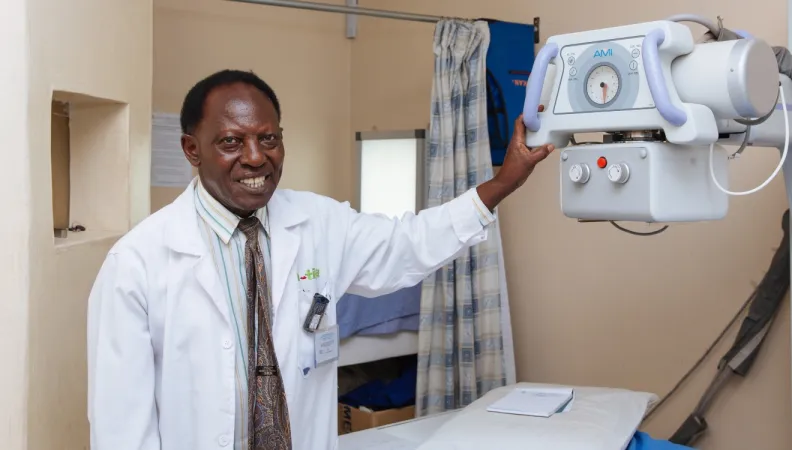Share the page
Covid-19: Preparing for the Pandemic in Africa
Published on

Agence Française de Développement has provided investment funding to help shore up and improve the infrastructure and capacity of institutions across East and West Africa. It’s part of a growing effort to consolidate health services, which are now on the front lines of the global fight to contain the coronavirus.
With the Covid-19 pandemic slowly spreading across Africa, health authorities are faced with three kinds of challenges: social distancing and prevention; personal hygiene and protection; and health facilities that are likely to become increasingly strained in the coming weeks and months.
Health Facilities Big and Small
The Medical Credit Fund provides loans to more than 1600 health institutions in East and West Africa, from funds for construction and infrastructure in the order of $2.5 million, to as little as $100 for short-term pharmaceutical supplies.
“With our second loan, we are constructing a new operating theater and a 3-bed intensive care unit,” says Alice Bett, Director of Siloam Hospital, in southwest Kenya near the Uganda border. “We are also building a laboratory and expanding our maternity wing.”
With many public healthcare systems across Africa chronically under-financed, patients depend on the private sector. Small hospitals and clinics often lack the initial capital to buy and maintain equipment and medicine, but large numbers of patients do provide a constant turnover.
“With the high population and limited health facilities, demand is always high for medical attention,” says Kennedy Okongo, MCF’s Director.
Repayment Rates at 96%
Of the more than 4,000 loans issued by MCF in Kenya in 2019, the repayment rate stands at over 96% - even though for small and medium loans, no collateral is required.
“That’s because of the robust system of money transfers, and because it targets low-income clinics, often in slum areas and informal settlements, which cannot afford any collateral,” says Okongo. “Most important to us is the patient numbers. To us it’s the cash flows that enable clinics to pay back the loans we advance.”
The Medical Credit Fund is part of umbrella group PharmAccess, based in the Netherlands and operating in East and West Africa.
Support Urgently Needed to Combat Covid-19
As the number of Coronavirus casualties mounts worldwide, hospitals and clinics already face an urgent shortage of Personal Protective Equipment (PPE): gloves, masks, face shields and hand sanitizer.
“These are extremely important because if you get enough PPE, it will help healthcare facilities and most importantly, their staff, to stop the infection from spreading,” says Nicole Spieker, Quality Director for PharmAccess. She warns that the health crisis poses problems for medical facilities’ capacity to cope in the short term, and if the pandemic expands as it has in Europe, some may even cease to exist.
“About 50 percent of healthcare providers in Africa are private – and they rely on income by seeing patients,” adds Nicole Spieker. “A significant proportion of healthcare providers, which we can’t afford to lose, risks going bankrupt in Africa. So we are working on developing financial products – special loans – to help these health providers.”
Providing both information on the coronavirus and loans – from major public hospitals to small local clinics in city slums – MCF operates in Kenya, Tanzania, Uganda, Ghana and Nigeria, and plans to expand. Agence Française de Développement has provided MCF with €4 million (€3 million in loans and a €1 million subsidy).
